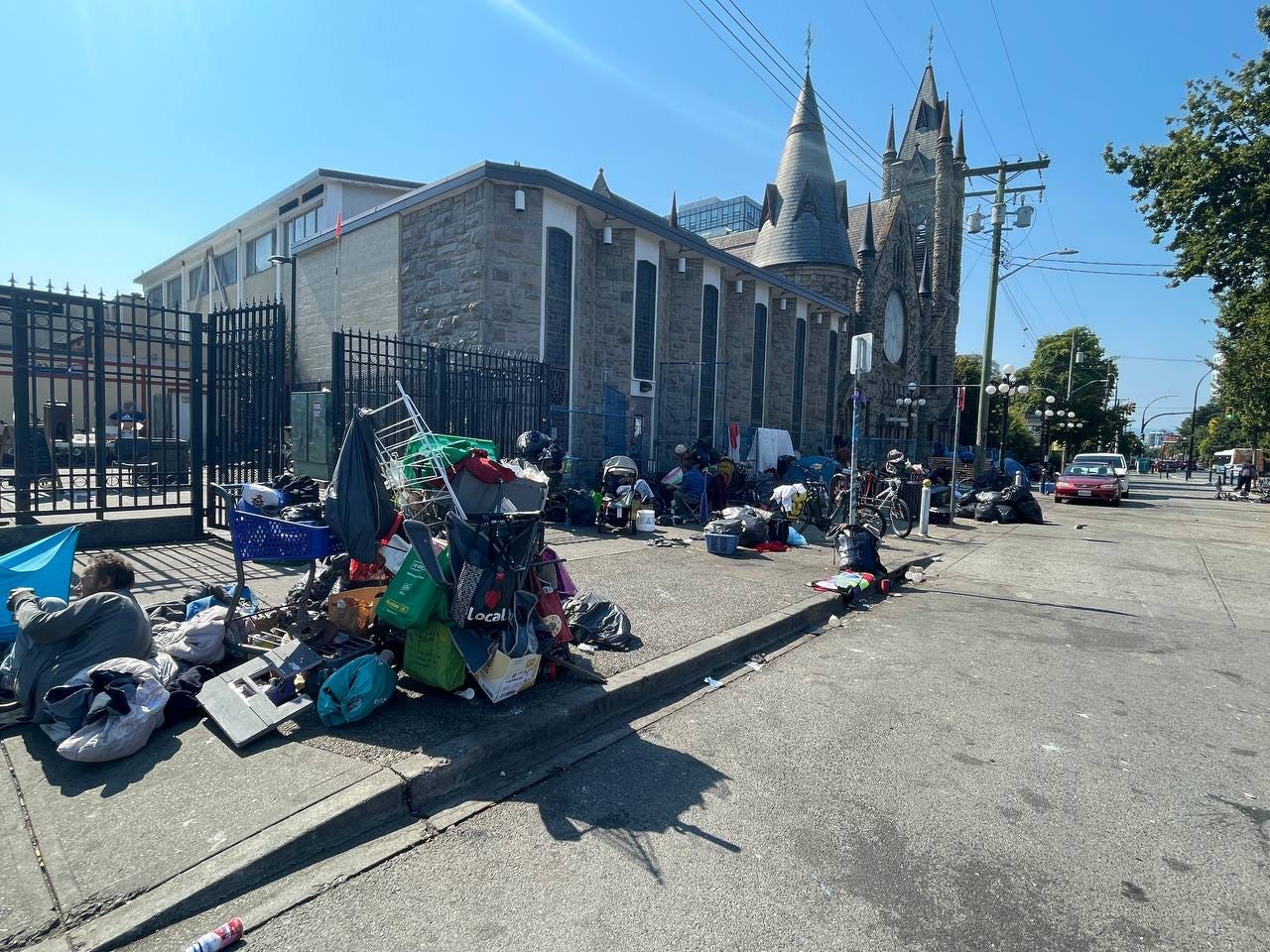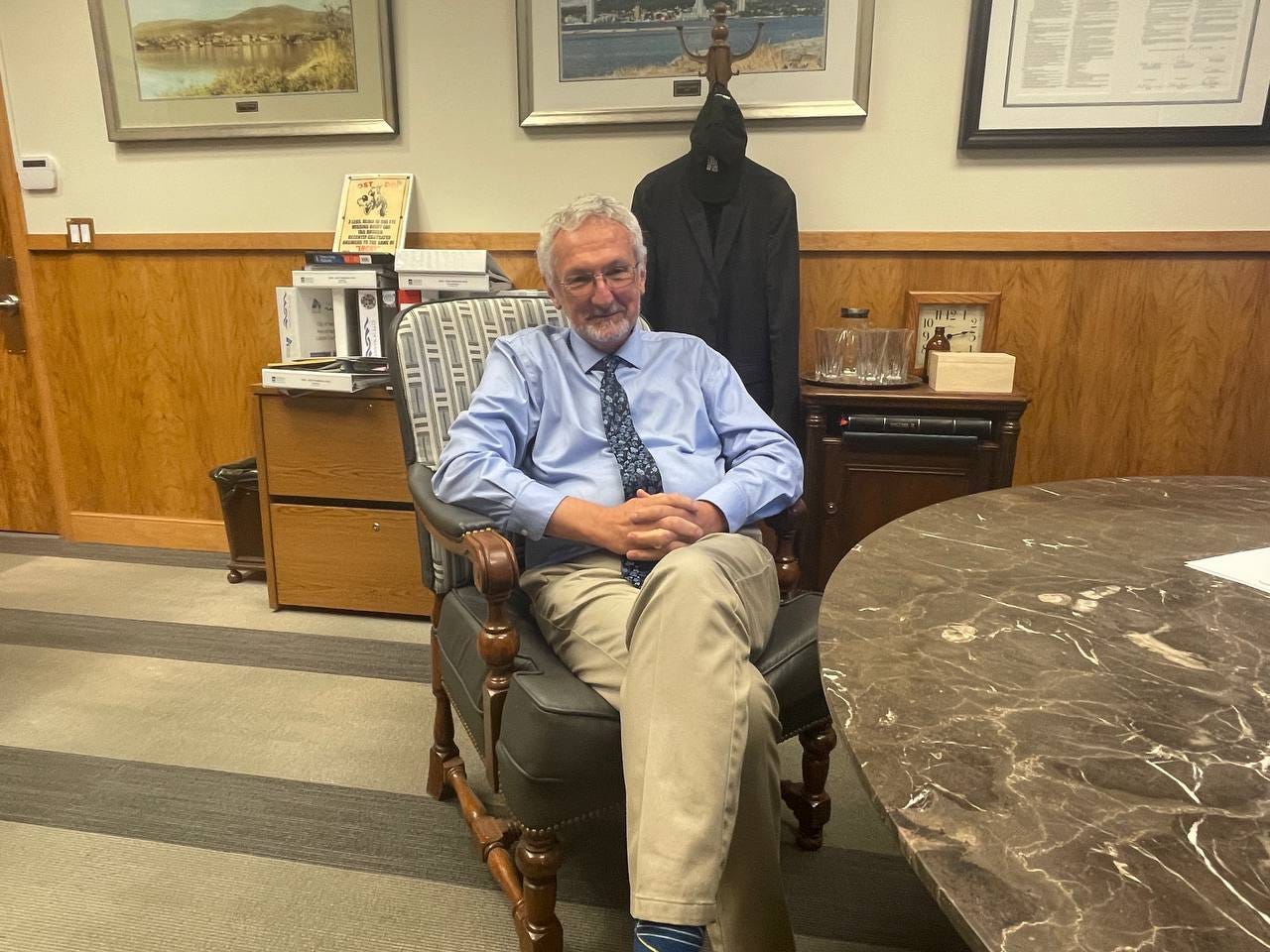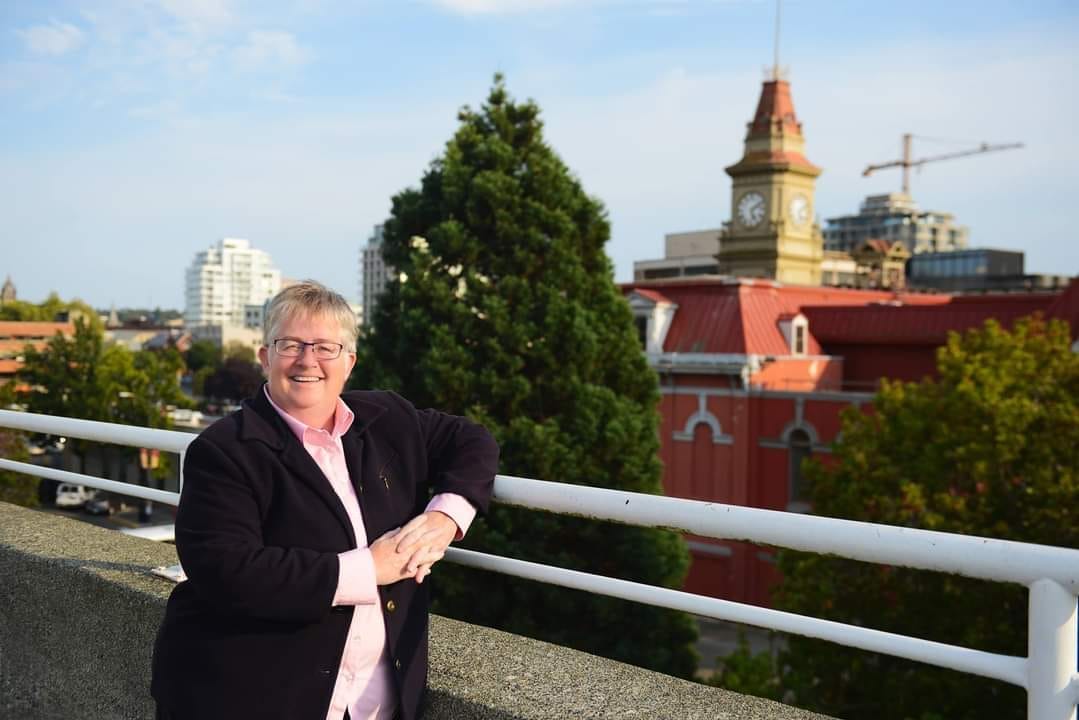B.C. mayors voice discontent over province's response to drug crisis
A number of B.C. mayors say the province's drug decriminalization project has been a failure — and they are not confident involuntary care will address the problem

By Alexandra Keeler
Many B.C. mayors are unhappy with the province's handling of the drug crisis, saying it is failing their communities.
“I don't think [the province’s] approach was very well thought out,” said Mayor Brad West of Port Coquitlam, a city of 61,000 that is a half-hour’s drive east of Vancouver.
“They announced, seemingly pretty quickly, that the province was going to pursue decriminalization, and there didn't seem to be a lot of public discourse or consultation in the lead up to it,” he said.
“It was just kind of like, ‘Bam! Here it is.’"
West’s comments were echoed by other municipal leaders, who also say the province’s harm-reduction and treatment services are under-resourced, leaving them ill-equipped to help community members who are struggling.
'Can't do anything'
West says he and Port Coquitlam’s constituents observed an immediate increase in public drug use after the province launched a three-year, trial decriminalization project in January 2023.
The project initially enabled residents to use otherwise illicit drugs — such as fentanyl, heroin and cocaine — in most parts of the province, although it prohibited drug use on school premises or near child-care facilities.
Yet, West says drug use in parks and playgrounds was a major issue in his community.
"What [decriminalization] meant in a place like Port Coquitlam is that when you did have an incident that required a police response, none was forthcoming anymore,” he said. “[Police] would tell you, ‘Well, we can't do anything. We're not allowed to.’”
In June 2023, Port Coquitlam responded by passing a bylaw, introduced by West, that banned drug use in public spaces. Other B.C. municipalities — including Nelson, Kamloops and Campbell River — soon followed suit.
In December, B.C. tried to pass a law enabling police to remove people from public spaces if they were using drugs. But a B.C. court temporarily blocked it, citing risks to drug users.
The province then sought approval from Ottawa to re-criminalize public drug use, which it obtained this spring. Now, hard drug use is only permitted in private residences, legal shelters or harm-reduction clinics.
Wait times
West says he has also been frustrated with the province’s harm-reduction facilities, which he describes as “poorly staffed” and “under-resourced.” These facilities often fail to connect individuals to necessary resources or recovery programs, he says.
West has witnessed some of these problems up close. His stepbrother battled addiction and homelessness before finding recovery.
“The biggest barrier that I think he encountered — and most people encounter in terms of recovery — is the wait times,” he said.
The wait time to get into B.C.'s private addiction rehab centres is about three to seven days. But the cost — ranging from $10,000 to $30,000 a month — is out of reach for many.
By contrast, the wait time to get into government-funded programs is about three to six months.
In addition to advocating for more accessible recovery services, West emphasizes the need for stronger enforcement at docks, ports and borders to combat drug trafficking.
“Our ports of entry, our border, the port itself, are completely porous,” he said. “We have no dedicated port police — one of the few jurisdictions that doesn't. And as a result, Metro Vancouver has become an epicentre for drug trafficking.”
In May 2023, he was the sole Canadian mayor invited by US Secretary of State Antony Blinken to discuss the issue with other mayors. “We have weak [drug] laws … This is why I think we've become a global hub for [drug trafficking],” he said.
Brain damage
The BC NDP and BC Conservatives have both recently pledged to introduce involuntary care, which would enable the province to admit people with addiction challenges, brain injuries and mental-health issues into treatment facilities without their consent.
Mayor Leonard Krog of Nanaimo, a coastal city of about 100,000 on the east side of Vancouver Island, has long advocated for involuntary care.

Krog notes that a significant segment of the homeless population has suffered brain damage, which can exacerbate efforts to help them. A 2020 report by Brain Injury Canada says about 50 per cent of people experiencing homelessness have some form of brain injury.
Krog does not believe people with brain injuries and addiction issues are likely to seek treatment on their own. “Those folks should be in secure, involuntary care,” he said.
But he is not optimistic that NDP’s involuntary care proposal will address the full scope of the issue.
“[I]n terms of numbers, my strong view is that it will not address the significant population who are currently in the streets.”
Stay alive
Victoria Mayor Marianne Alto believes in providing support to keep people alive until they seek recovery.
“My view of harm reduction is … I'll give you anything you need to stay alive until you have that epiphany moment,” she said.
But she is concerned that the province has not adopted a comprehensive approach to tackling the drug crisis. The recent proposals to introduce involuntary care have not eased her concerns.
"Involuntary care can be a necessary tool in a complex system,” she said. “But its effectiveness hinges on clear standards. We must ensure that individuals receive not just initial intervention but also ongoing support to prevent their return to the circumstances that led them there."
“The devil is in the details,” she said.

The B.C. capital has been pursuing additional strategies to tackle the city’s homelessness, addiction and mental health challenges.
For example, a local nonprofit has been working with individuals living in parks to connect them with housing and support. “It’s also very slow, because to be very successful, you have to do it one person at a time, one-on-one. But it's working,” she said.
But other efforts have met resistance.
City council rejected a motion introduced by Alto that had proposed rewarding churches and cultural centres that offered overnight parking to vehicle-dwelling homeless people. Five council members opposed it, Alto says, citing fears about crime and concerns that the program overstepped their duties.
"There is a genuine fatigue in the public, which is being reflected in municipal councils, saying, ‘How much further, how much longer, how much more?’"
This article was produced through the Breaking Needles Fellowship Program, which provided a grant to Canadian Affairs, a digital media outlet, to fund journalism exploring addiction and crime in Canada. Articles produced through the Fellowship are co-published by Break The Needle and Canadian Affairs.

